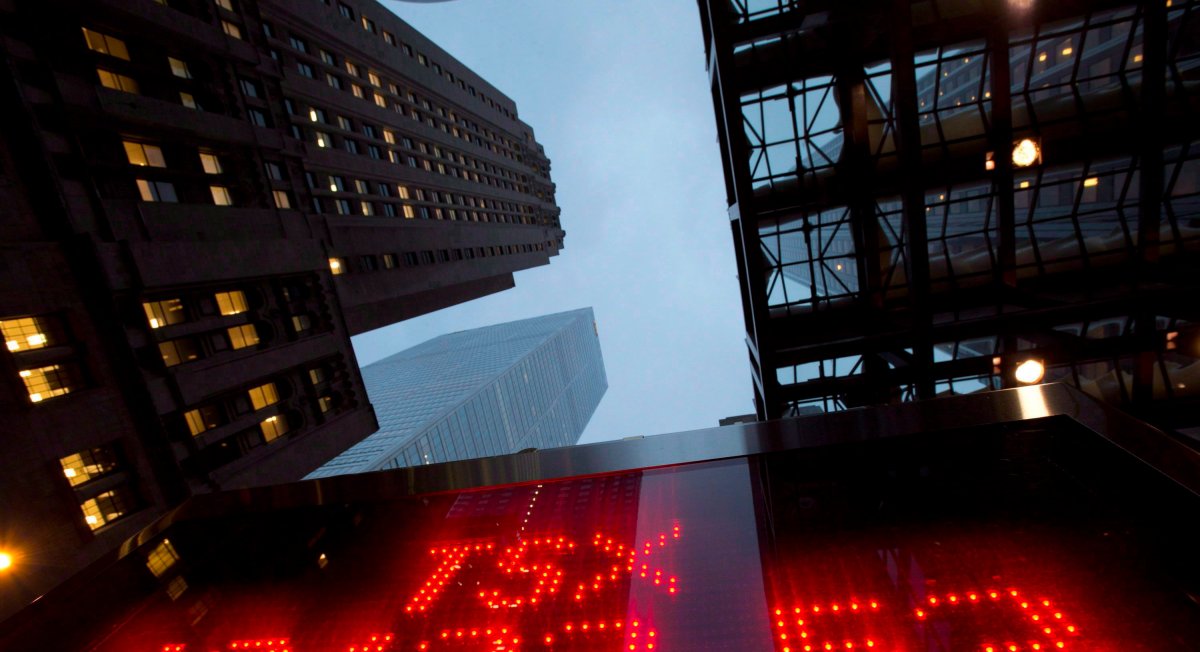TORONTO — Canada’s main stock index closed at an all-time high Thursday as it overcame a correction late last year that saw it lose 17 per cent of its value.

The S&P/TSX composite index gained 68.57 points to 16,612.81, surpassing the previous record close of 16,567.47 set last July.
Stock markets are feeling “calm and bliss” following a reversal in language from central banks towards advocating a slow rise in interest rates, says Kash Pashootan, CEO and chief investment officer at First Avenue Investment Counsel Inc.
“That has the market feeling much more comfortable and confident, which has continued to push equity markets higher,” he said in an interview.
The TSX has recovered 2,832 points or 20.6 per cent since sinking to its December low.
WATCH: What Canada’s 1st inverted yield curve in 12 years tells us

Pashootan said the softening of Federal Reserve language about raising interest rates has been the foundation of the markets’ recovery, but some other factors have contributed fuel to the fire.
A 41 per cent surge in oil prices in 2019 was among the main contributors. The election of a conservative government in Alberta and first-quarter U.S. corporate results beating downward revised estimates have also injected some enthusiasm into markets.
Recent data has also been supportive as economic growth in China and the U.S. is better than expected, U.S. jobless rates are at 50-year lows and March retail sales announced Thursday were the strongest gain since September 2017. In Canada, retail sales rose 0.8 per cent in February to $50.6 billion, the first increase since October.
But Pashootan is cautious about his outlook for markets.
“We feel that although we have seen a relief in equity markets here in the first few months of the year…we’re not becoming comfortable because we feel that this party is not going to last for all of 2019.”
WATCH: What it takes to net high-paying jobs in Canada

He said some of the positive economic data is a hangover from 2018 that was primarily fuelled from U.S. tax cuts as opposed to true economic growth.
“When we open up the gas tank and look inside we don’t see a lot of fuel left.”
In a trade-shortened week because of Good Friday, the Dow Jones industrial average was up 110.00 points at 26,559.54. The S&P 500 index was up 4.58 points at 2,905.03, while the Nasdaq composite was up 1.98 points at 7,998.06.
The Canadian dollar traded at an average of 74.73 cents US compared with an average of 75.01 cents US on Wednesday.
The June crude contract was up 20 cents at US$64.04 per barrel and the May natural gas contract was down 2.7 cents at US$2.49 per mmBTU.
WATCH: ManpowerGroup’s employment outlook survey

The June gold contract down 80 cents at US$1,276 an ounce and the May copper contract was down 4.75 cents at US$2.92 a pound.
Materials fell as investors moved away from safe havens. On the flip side, the TSX was led by the consumer discretionary and health-care sectors. Canopy Growth gained 4.4 per cent after announcing a deal to buy U.S. company Acreage Holdings Inc. for US$3.4 billion, but only if cannabis becomes federally legal in the United States.



Comments